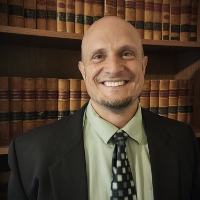 Aldrich Criminal Lawyers, Minnesota
Aldrich Criminal Lawyers, Minnesota
Sponsored Lawyers
1-3 of 3 matches
Divorce & Family Law, Criminal, Real Estate, Estate, Bankruptcy & Debt
The Law Office of Attorney Edward R. Shaw is located in Brainerd, Minnesota and has been serving the Brainerd Lakes Area and surrounding counties with top quality legal services since 1996.
(more)Criminal, Divorce & Family Law, Accident & Injury
Proudly taking criminal, divorce & family, and accident & injury cases out of Brainerd, Minnesota and the surrounding areas.
(more)





